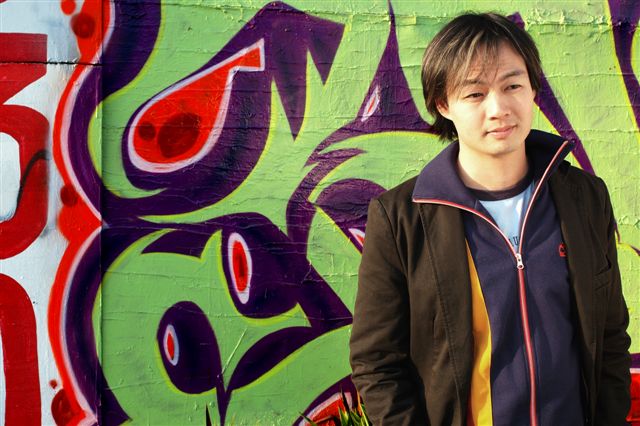Thoughts On Instrumentation
It dawned on me the other day about the importance of instrumentation to the promotion of music. Many times the instrumentation that you select for a song--whether it be solo piano, orchestral, or pop--will make your listener decide immediately whether they want to continue to listen to your music. Here's what I mean...
If you're flipping through radio stations, catch a quick ad on TV, or even stumble across a user's MySpace page on the internet, the first thing that you'll hear when a piece of music starts playing is its instrumentation. Even before you hear lyrics, even before you hear a melody, even before you can figure out how fast a piece of music is, you'll immediately identify what's playing it. You may not know the specifics--is that an oboe or English horn? Nylon string guitar or finger-picked acoustic?--but you'll immediately get a rough sense of what's producing the sounds that you hear. And based on that snap judgment, chances are you'll immediately know what genre of music it is, and based on your existing biases, make a decision whether you'll want to keep listening or not.
In this day and age, most music is stumbled upon--that is, you casually came across it in an iPod commercial, or an episode of Grey's Anatomy, or even a video game. So what if the choices that you make in instrumentation are SO powerful, and SO compelling, that the moment someone hears the combination of instruments that you use, they're compelled to keep listening? That would be a powerful tool.
There's not a lot of music out there with instrumentation this compelling, however. If you work within a specific genre, a lot of times your instrumental choices will be made for you--acoustic instruments for country, electronic for electronica, beats for hip hop, orchestra for classical, etc. So to find stuff like this, one probably has to turn to more crossover artists. To give you a few examples, the first time I heard Bjork was a revelation. The way she would mix delicate timbres like a music box with heavy electronic beats in 'Pagan Poetry' was inspired:
I was not a huge Sting fan, but the first ever single I bought of his was his duet with Cheb Mami on the song 'Desert Rose', which I first heard in a Jaguar commercial. The mix of commercial production with Arabic vocals grabbed my attention, and I went and bought the track:
Peter Gabriel's 'Passion' soundtrack was a huge inspiration for me. Talk about fusing world music elements with synths... Peter Gabriel rewrote the rule book on this one.
My friends the On Ensemble do great work like this as well--fusing traditional Japanese music with hip hop and electronica:
And let's not forget all the excellent African music/pop fusion that's been done out there, by the likes of Paul Simon in Graceland and Hans Zimmer for The Lion King, perhaps the music that 'Baba Yetu' gets compared to most often. (Personally, while I love Hans' music and admire him as a composer, I don't think Baba Yetu and The Lion King are really all that similar. Most people make the comparison because it's the closest cultural reference they have to anything that's an African choral hybrid, but neither of us were the first to fuse African choral music with orchestral writing, and hopefully neither of us will be the last.)
Labels: Composition Principals, Musings, Teaching


5 Comments:
I think you are right - in fact, if you look at the sound cloud samples of your new cd, I wonder if it is perhaps demonstrated? Baba Yetu and Mado Kara Mieru are the two songs fans had been exposed to, so I suppose that is their expectation of the cd's music. If you look down the playlist, the number of plays drops with each song down the list - perhaps because as they listen, they realize it isn't exactly like the first two they had heard (and the expectation that had been set by them), so stop listening? Just a thought...
September 1, 2009 at 10:59 PM
Gain valuable insights into the world of instrumentation and its significance in different fields. Visit our website for thought-provoking articles and expert opinions.
June 17, 2024 at 11:00 PM
Use our extensive articles and resources to obtain insightful knowledge about instrumentation. Keep yourself updated on the newest trends and recommended procedures...I'm eager to see more articles similar to this one in the future. I'm sure this post will be helpful to a lot of readers. I am grateful that you have shared your knowledge and skills.
October 4, 2024 at 12:36 AM
Without a doubt, this post is incredible. Every time I read your blog, I’m captivated by the way you explain things so clearly and effectively.
where does money come from
October 26, 2024 at 9:29 AM
This is such an insightful take on the power of instrumentation in music! It’s fascinating how the choice of instruments can immediately shape a listener's perception and make or break their interest in a piece. The examples you shared, like Bjork’s innovative fusions and Peter Gabriel’s groundbreaking work, perfectly highlight how unique instrumentation can captivate an audience. It reminds me of how Custom Assignment Help provides tailored support to fit specific academic needs, much like how carefully selected instrumentation elevates a song.
November 15, 2024 at 3:19 AM
Post a Comment
Subscribe to Post Comments [Atom]
<< Home